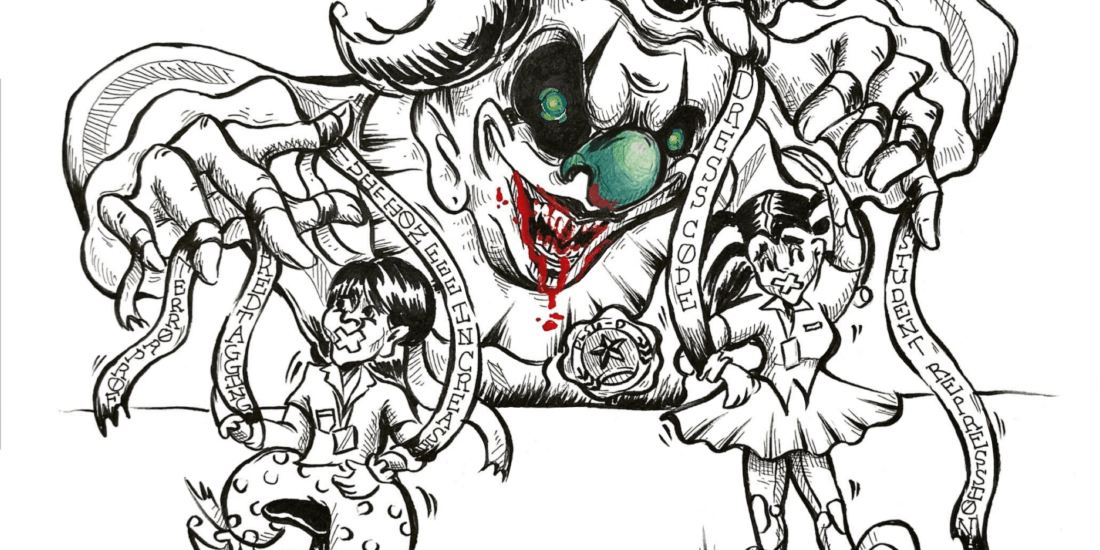DLSU-D loses autonomous status after 15 years, outlines two-year recovery plan
The De La Salle University – Dasmarinas (DLSU-D) has lost its autonomous status after 15 years, following the Commission on Higher Education’s (CHED) release of an updated list of autonomous Higher Education Institutions (HEIs) earlier this academic year (AY), wherein the University fell short in meeting the criterion for institutional quality and excellence, scoring only 1 out of 30 points.
In response, the University has outlined immediate plans to reclaim its autonomous status within two years, focusing on improving institutional performance.
Turning the tides
In a memorandum addressed to the DLSU-D community, University President Br. Francisco “Sockie” de la Rosa VI FSC emphasized that this setback should serve as a wake-up call for the institution to address these long-standing issues head-on and bring back the University’s glory.
“As we move forward, let us unite to regain our school’s old glory and create new possibilities for the future. This is our responsibility—we are all involved,” de la Rosa stated. “We sink or swim together.”
In relation to this, the Brother President also outlined the necessary steps for recovery within two years, focusing on addressing gaps in institutional quality and excellence.
He shared key development points including the increase of full-time faculty engagement in scholarly work and raising the number of permanent faculty members who receive national and international recognition for research.
In addition to faculty development, de la Rosa also said that the University aims to boost student achievements by securing international recognition in disciplines distinct to their fields and expanding extension programs to address local needs, explaining that strengthening both local and international collaborations and encouraging student participation in mobility programs will enhance the institution’s relevance.
He revealed that some priorities in the coming semester that fall within University’s strategic plan include diversifying revenue sources to support operations and enhance learning spaces, evident through projects such as new uniforms, parking spaces, and dormitories.
He discussed efforts for administrative processes aimed at making transactions, including payments and document requests, more efficient in order to provide a more client-centered experience.
Additionally, innovation remains a priority, with investments in online education, artificial intelligence (AI), and internationalization.
De la Rosa also stated that DLSU-D is committed to fostering a healthy work environment in its pursuit of a five-star rating under the ASEAN University Network-Health Promotion Network (AUN-HPN). The University plans to build a centralized academic and research building to promote synergy and optimize resources while promoting a universal and inclusive learning space for everyone.
Lastly, the Basic Education division will undergo expansion through negotiations for a separate campus, meeting the growing demand for affordable and quality Lasallian education.
“I encourage each one of you—students, parents, faculty, alumni, and staff—to come together as one community. Let us support one another, share our talents, and work collaboratively to achieve our common goals,” de la Rosa concluded.
What led to the loss
In a press conference with the University Student Government (USG), President Abigail Hapal revealed that DLSU-D lost its 15-year autonomous status due to various factors discussed with the Office of the Vice Provost for Academics (OVPA), including insufficient research output, below-average board exam passing rates, subpar classroom and facility conditions, and concerns about teaching quality.
The autonomous status refers to the designation given to HEIs that are granted greater independence, allowing them to design their curricula, set policies, and award degrees without direct oversight from CHED.
Hapal emphasized that the University’s loss of autonomy has resulted in significant setbacks, including the loss of exemptions from CHED evaluations, longer processing times for fourth and fifth-year students seeking international internships, and additional administrative tasks for faculty and staff.
“So, we lost the benefits that we used to have, for example, exemption nga from CHED monitoring and evaluation at the same time. ‘Yong priority for grants and subsidies kasi lahat ng may autonomous status, they get to receive those, nasa priority list sila. So ngayon, we are not on that priority list anymore,” Hapal revealed.
Following this loss, DLSU-D will now operate under stricter supervision from CHED, requiring approval for major decisions that were once made independently.
Despite this, the USG President expressed confidence in the University’s plan to regain its autonomous status within two years, emphasizing the importance of the Campus Development Plan over short-term fixes or “band-aid solutions.”
“Ang ina-assert namin to the administration is to stop focusing on band-aid solutions and focus more on the long-term and actual ones. Kaya they really have to listen—start listening—to the inputs of the stakeholders of the University,” Hapal stressed.
Originally published in Heraldo Filipino Volume 39, Issue 1




